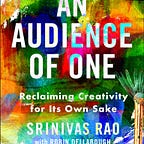The Daily Habits that Every Aspiring Author Must Develop
1. Write Daily
I had aspirations of writing a book ever since I started my very first blog. But it wasn’t until I got into the habit of writing 1000 words a day that I was finally able to write and publish a book. Not only that, having a daily writing habit enabled me to develop the skills that allowed me to finish a 45,000-word manuscript in 6 months. If writing 1000 words feels like a lot, start small. Do 3 sentences a day. In the beginning, what matters more than your word count is developing the habit of sitting down to write.
2. Read A Lot of Books
As I’ve said before if you want to become a prolific writer, become a voracious reader. There’s probably no greater investment than books if you have aspirations of becoming an author. Many of my ideas for articles, sections of my books, and creative projects all come from reading books. Steve Jobs famously said that creativity is connecting dots. Reading lots of books gives you dots to connect.
3. Develop a System
Having a system is essential to increasing your creative output. A system gives you a reliable way to continually produce. While the quality of your output is going to be somewhat unpredictable, a system will make your process predictable. A goal oddly enough limits you to just one outcome. A system, on the other hand, opens up an infinite set of possibilities.
4. Focus and Deep Work
If there’s anything that would be considered the holy grail, it’s focus and deep work.One focused hour a day of uninterrupted creation time can transform sentences into paragraphs, paragraphs into pages, pages into chapters, and chapters into books. Avoiding sources of distraction and doing deep work will help you get more done in less time. What starts out as a snowball eventually turns into an avalanche with enough momentum.
5. Fall in Love with the Process, not the Prize
There are lots of people who love the idea of writing a book more than the actual process of writing the book. The prize is largely out of your control. When the prize becomes the focus, the ego becomes the enemy, and resistance demolishes our efforts. If you want to write a book, it’s important to know that something like 90% of your time will be spent actually writing. Focus on the process, not the prize.
6. Downtime
Quitting social media for 5 days and having no cell or internet access for several days taught me quite a bit about the power of downtime. A significant amount of downtime resulted in increased focus, greater levels of flow, and a significant increase in the volume of my creative output.
We live in such a state of distraction that we have not even really began to understanding the long term damage that this is doing to our humanity. If you’re on your computer, with the phone in your lap, while watching TV, there is absolutely no way that you can achieve peak performance or flow. But the damage goes further beyond. I was recently watching a documentary series called The Beginning of Life. And one of the things that many child development specialists said is that when children spend so much time with their faces buried in screens they miss out on many pivotal experiences that are essentials to social development.
When we spend our days and our lives with our faces buried in screens, living through the lens of other people’s experiences, we’ve let life become a spectator sport rather than an experiential one.
Imagine if a person spent their entire lives staring through a window, just watching life happen. We’d think something was wrong with that person. That’s effectively what we’re doing when our faces are buried in screens. Sadly, we don’t even know the extent to which this is harming our ability to relate and be human. But we should be much more mindful of all of this.
When we are perpetually connected and voraciously consuming information, there’s almost no time for integrated reasoning and insight. If we want creative dots to connect we need to get away from our devices and be mindful of the fact that excessive consumption limits our creativity.
Most of these habits are part of the 8-step daily routine that has allowed me to write 100’s of articles and 3 books. Start by incorporating one of these habits. A week later adds another one and so on. By the end of 6 weeks, you’ll find that you’ve gained a significant amount of momentum. Don’t forget that momentum is the lifeblood of any startup or creative endeavor and if you become complacent, you’ll have to start from scratch and build that momentum all over again.
Before You Go…
If doing the best work of your life is important to you, check out my free guide: “Optimizing Productivity & Creativity.”
The tactics I’ve packed into this guide allowed me to write over 1 million words in the last 2 years. What could it do for your life’s work? Don’t miss it.
